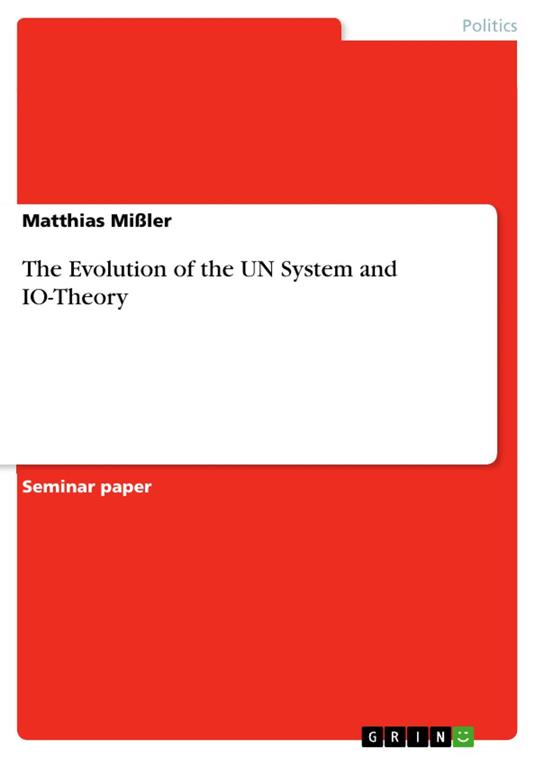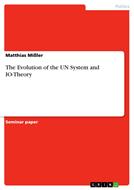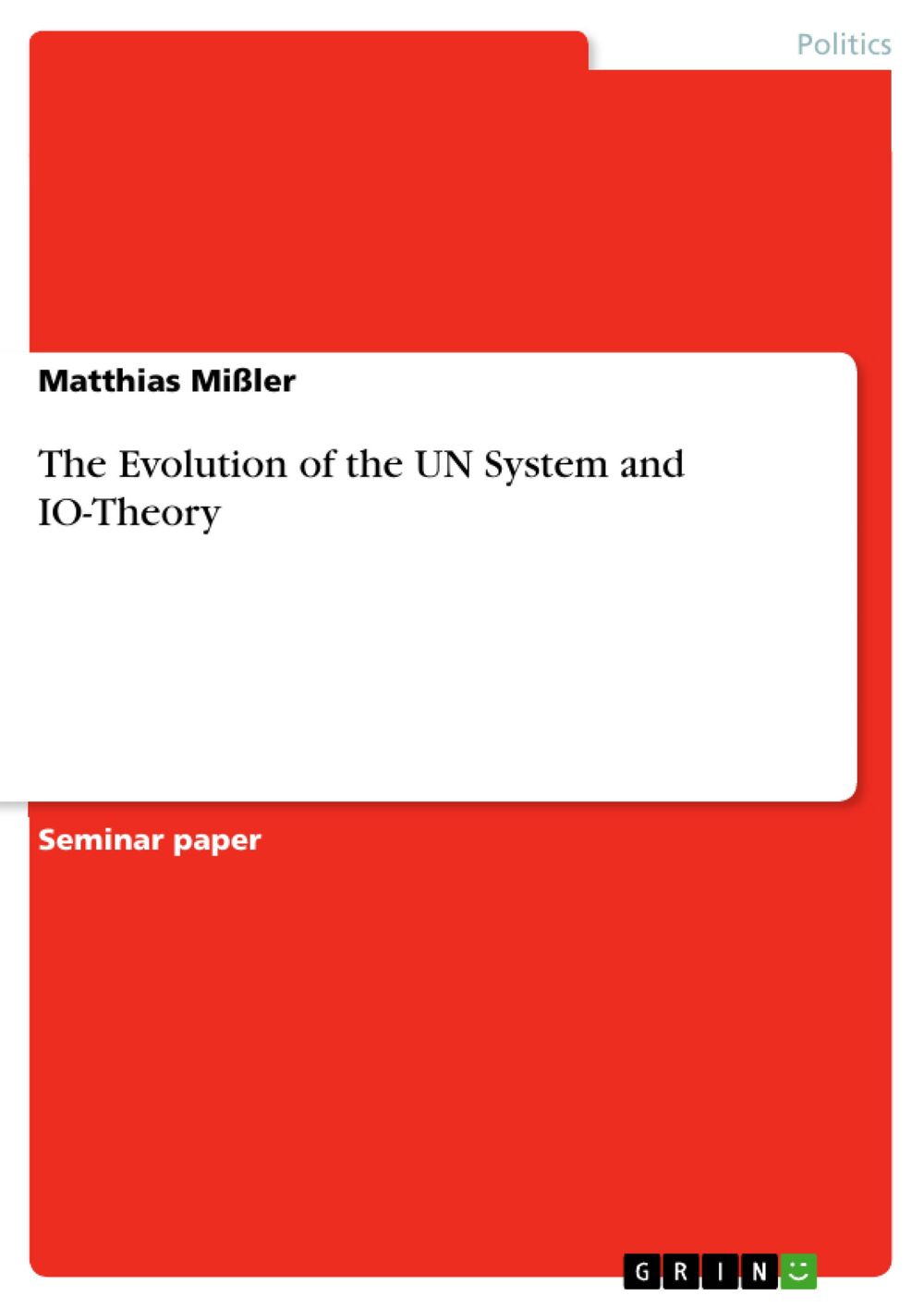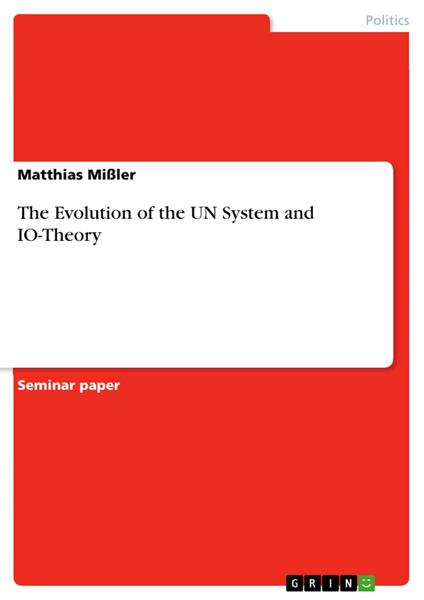The Evolution of the UN System and IO-Theory
Seminar paper from the year 2003 in the subject Politics - Topic: International Organisations, grade: 2 (B), University of Tubingen (Institute of Political Science - Department of International Relations/Peace- und Conflict Research), course: UN System Politics and Policy, language: English, abstract: The history of international relations, which is dominated by competition of states, was impressed by the overcoming of this structure. There were several philosophers like Niccolò Machiavelli, Immanuel Kant and Jürgen Habermas who were engaged in answering the basic question about how states could cooperate and how they could solve their conflicts.1 International organizations (IOs) are one response to the growing tension in world society between the process of integration and the desire for separation. The Industrial Revolution, the creation and integration of the world economy and at the same time the movement of ideas and people, as well as that of goods and services were the basics for the idea of globalisation. There was also a growth of nationalism, particularly strong in eighteenth- and nineteenthcentury Europe. Subjects became citizens, and there was a tendency to a sharper demarcation of identities based on language, religion and ethnicity. The growth of IOs is a reflection of the spirit of the times of the nineteenth century and early twentieth century. The United Nations Organization is the second try to order the international system and to minimise the “perils of anarchy.”2 It’s the second try to trust in an organization for securing the “peace of the world” by the people of the world, after the League of Nations. After the Second World War, the demand of governance in world affairs was growing. The UN are a product of rising interdependencies among the states in the international system. IOs are the operative objects in this essay. In the first part of this essay, I will provide some basic historical information, which gives a better understanding of the circumstances of the evolution of the United Nations System. After a definition of IOs, I will analyse the United Nations System, its function as an IO, by giving examples of the history of the UN. In this essay I will sketch, firstly, why IOs will be created. Secondly, I want to investigate if IOs matter. Thirdly, I will subject to closer scrutiny how the action of IOs do differ between the different issue areas. By answering these questions, I will deal with the theories on the current scientific debate. Coming from these theories, I will develop hypotheses and apply them to some cases exemplary for the most important historical periods.
-
Autore:
-
Anno edizione:2003
-
Editore:
-
Formato:
-
Lingua:Inglese
Formato:
Gli eBook venduti da Feltrinelli.it sono in formato ePub e possono essere protetti da Adobe DRM. In caso di download di un file protetto da DRM si otterrà un file in formato .acs, (Adobe Content Server Message), che dovrà essere aperto tramite Adobe Digital Editions e autorizzato tramite un account Adobe, prima di poter essere letto su pc o trasferito su dispositivi compatibili.
Cloud:
Gli eBook venduti da Feltrinelli.it sono sincronizzati automaticamente su tutti i client di lettura Kobo successivamente all’acquisto. Grazie al Cloud Kobo i progressi di lettura, le note, le evidenziazioni vengono salvati e sincronizzati automaticamente su tutti i dispositivi e le APP di lettura Kobo utilizzati per la lettura.
Clicca qui per sapere come scaricare gli ebook utilizzando un pc con sistema operativo Windows



